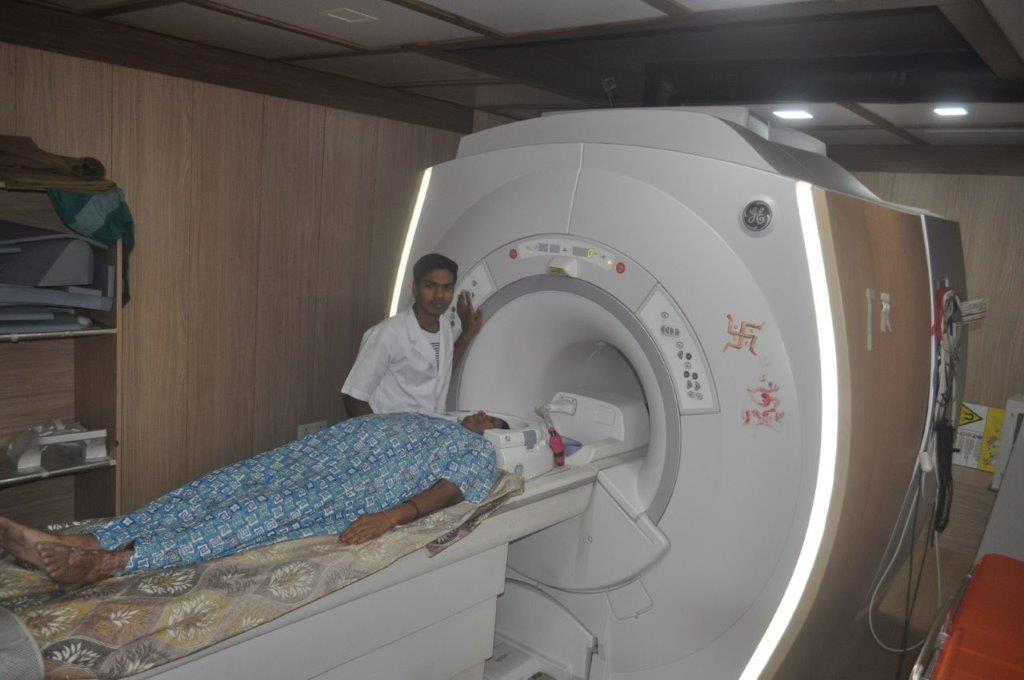MRI
Definition:
Magnetic Resonance Imaging uses a strong magnetic field, radio waves and a computer to produce detailed internal pictures of your body. No X-Rays are involved. In basic terms, the magnet makes the hydrogen protons in your body all behave in the same way. The protons are excited by a radio frequency pulse, this pulse is then switched off and the protons emit extra energy. An antenna receives these signals and a computer produces an image.
Any part of your body can be imaged to assist in the diagnosis of your medical condition.
At The Gupta Diagnostic Clinic one of the most technically advanced MRI scanners is available to our referrers and patients. The GE make 1.5T MRI scanner provide comfort and quality.
Preparation:
For the majority of examinations no preparation is required. You may continue to eat and drink and take your medication as usual. If any preparation is required a member of staff will contact you with instructions.
In many cases, you can have your MRI scan performed while wearing your own clothes. However, we must ensure that none of your clothing or accessories contains any metal that could be attracted to the magnet and interfere with your scan.
For your own safety and convenience, we ask that you observe the following rules:
- Wear comfortable clothes without metal zippers, safety pins, studs or buckles.
- Remove any metal containing objects such as, jewellery, hairpins, hearing aids, glasses, wigs, watches etc.
- Empty your pockets of all loose items such as money, coins, credit cards, mobile phones, keys, pens etc.
The Scan Itself
For the majority of scans you will be required to lie on your back on a padded table, which moves into the magnet opening. It is extremely important that you keep still while you are being scanned. Any movement will blur the images and the scans may need to be repeated.
NOTE: Some procedures will require a small injection of contrast into a vein in your arm (similar to a blood test). This technique provides more detailed information on the images. You will be informed of this before the scan is started.
Obtaining the Results:
Your MRI Scan will be interpreted by a Consultant Radiologist who specialises in MR Imaging. This is usually done on the day of your scan. The report and the images are sent to your referring clinician the following day. You will be contacted by your referring clinician in due course to discuss the findings of this procedure.
Contraindications:
Contraindications are reasons why an MRI Scan may not be undertaken. There are several medical conditions or metallic devices that may be in the body that make MRI scanning unsuitable, for example:
- A Cardiac Pacemaker
- Aneurysm Clips
- Metallic foreign bodies (particularly in the eyes)
- Cochlear Implants
- Neurostimulators
- Pregnancy
All of the above make the use of powerful magnetism impractical and unwise. However, stainless steel prostheses such as hip or knee joint replacements, spinal and intramedullary nails and some heart valves can be imaged safely.
If you have any of these devices or conditions please contact a member of staff at the MRI Unit to discuss whether it is possible for you to undergo the examination.




